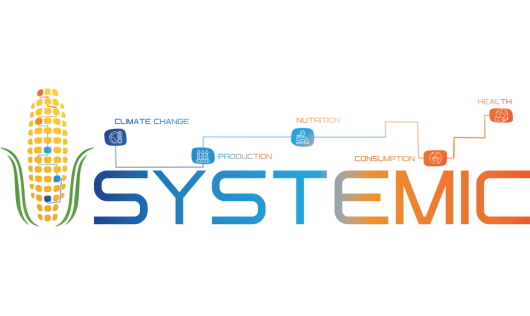
category_news
Applying a Food Systems Approach: Insights from the SYSTEMIC Project Evaluation
An extensive expert evaluation report of the SYSTEMIC project has been developed, highlighting key achievements and contributions to sustainable food systems. The project has significantly advanced research on food security, sustainable agriculture, and climate change mitigation, delivering valuable policy recommendations, peer-reviewed publications, and dissemination activities.
Background of the Project
SYSTEMIC explored the development of sustainable diets incorporating novel protein sources such as algae, insects, and cultured meat. Through case studies assessing consumer acceptance, the project demonstrated that alternative protein sources could complement traditional diets and reduce the environmental impact of food production. Notably, replacing a portion of red meat consumption with algae-based products showed a significant potential for lowering carbon footprints.
Key outcomes include:
- Development of a climate database relevant to national contexts (Italy), assessing the impact of altered rainfall patterns, desertification, and rising sea levels on food security.
- Proposal of adaptive strategies to enhance food and nutrition security, including the promotion of protein-rich, low-energy, and environmentally friendly food production processes.
- Innovation in food production and consumption, addressing feasibility and sensory challenges associated with novel foods.
- Development of strategies to create a sustainable, resilient, and nutritious food supply integrating both land and marine resources.
Download Evaluation Report
SYSTEMIC was funded under the ERA-NET ERA-HDHL and conducted as a joint initiative between FACCE-JPI, JPI Oceans, and HDHL. The project was part of the Food and Nutrition Security Knowledge Hub call and played a pivotal role in advancing research on food security, climate change, and sustainable agriculture. The knowledge hub format facilitated the delivery of concrete outputs, including policy recommendations, peer-reviewed publications, and dissemination efforts.
Impact on Public Health and the Environment
SYSTEMIC has contributed to research on environmentally sustainable agricultural practices, particularly in the production of alternative proteins. By promoting the use of insects and algae, the project highlighted pathways to reduce the environmental footprint of food production, emphasizing resource efficiency and lower greenhouse gas emissions.
Key contributions to public health:
- Development of recommendations for balanced and sustainable dietary patterns.
- Generation of nutritional guidelines for sustainable food production, supporting healthier and more environmentally friendly consumption choices.
Replacing a portion of red meat consumption with algae-based products demonstrated a significant potential to lower carbon footprints
Policy Impact
SYSTEMIC's research on climate change adaptation, food security, and sustainable agriculture has influenced academic discourse and provided actionable insights for policymakers. Evidence-based findings have supported the development of climate-smart agricultural policies at various governance levels.
Key policy contributions:
- Recommendations to enhance sustainable diets, improve resource efficiency, and promote climate-smart agriculture.
- Practical guidance for policymakers to integrate sustainability metrics into food system frameworks, ensuring alignment with environmental and societal objectives.
Stakeholder Engagement
A diverse range of stakeholders—including agricultural producers, food industry representatives, researchers, and consumer groups—actively engaged with the project. SYSTEMIC facilitated targeted workshops and webinars to disseminate research findings and collect stakeholder feedback. These engagements focused on advancing sustainable farming practices and promoting the adoption of alternative protein sources, fostering a collaborative approach to food system transformation.
Future Research and Next Steps
To increase consumer acceptance of sustainable diets, participatory approaches such as focus groups and co-creation workshops can help refine messaging and enhance the sensory appeal of alternative proteins. Industry readiness for market shifts will be crucial in adapting food production and distribution systems toward more sustainable and nutritious food products.
Further research should prioritize:
- Exploring cost-reduction strategies and scaling up production technologies to improve the affordability and accessibility of sustainable food options.
- Addressing scalability and region-specific implementation strategies to translate research findings into actionable solutions.
- Strengthening the integration of agronomic research and sustainable innovations into broader food production systems.
Conclusion
SYSTEMIC has laid a solid foundation for continued advancements in sustainable food systems. Its findings and recommendations will support future efforts in shaping resilient and climate-smart food policies while fostering innovation in sustainable agricultural practices.
